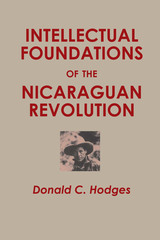Benjamin Shambaugh and the Intellectual Foundations of Public Hisory
Rebecca Conard
University of Iowa Press, 2001
"This is an important book that uses the long and distinguished historical career of Benjamin Shambaugh to place public or 'applied' history into a much-needed historical context. . . . Conard's narrative and analysis provide new insights into continuing debates about the proper role of federal and state governments in collecting and writing history. . . . an important contribution to American historiography in the twentieth century."--Barbara Franco, executive director, the Historical Society of Washington, D.C.
"In Benjamin Shambaugh and the Intellectual Foundations of Public History, Rebecca Conard has written a useful and intriguing book. . . . The historical profession and the people of Iowa are indebted to Rebecca Conard for this book, which explores the impressive career of Benjamin Shambaugh and sheds new light on the fundamentals of the public history movement."--Annals of Iowa
". . . an unexpectedly engaging and useful examination and analysis of the ideologies, arguments, and politics surrounding the rise of history as a professional and academic discipline from the mid-nineteenth to the mid-twentieth centuries, especially as they were often rancorously expressed in disputes between the East and Midwest, state and national perspectives, and academic and professional practice."--The Journal of American History
"Conard has provided the history profession with a layered narrative of its development and fragmentation or redevelopment over time, and has explored the meanings of its own histories."--Janelle Warren-Findley, The American Historical Review
"Conard's biography is well written and interesting, and her strategies for engaging in dialog with a variety of texts produce a fresh method for defining and assessing public history."--The Journal of Heritage Stewardship
Although his name is little known today outside Iowa, during the early part of the twentieth century Benjamin Shambaugh (1871 - 1940) was a key figure in the historical profession. Using his distinguished career as a lens, Conard's seminal work is the first book to consider public history as an integral part of the intellectual development of the historical profession as a whole in the United States.
Conard draws upon an unpublished, mid-1940s biography by research historian Jacob Swisher to trace the forces that shaped Shambaugh's early years, his administration of the State Historical Society of Iowa, his development of applied history and commonwealth history in the 1910s and 1920s, and the transformations in his thinking and career during the 1930s. Framing this intriguingly interwoven narrative are chapters that contextualize Shambaugh's professional development within the development of the historical profession as a whole in the late nineteenth and early twentieth centuries and assess his career within the post-World War II emergence of the modern public history movement.
Shambaugh's career speaks to those who believe in the power of history to engage and inspire local audiences as well as those who believe that historians should apply their knowledge and methods outside the academy in pursuit of the greater public good.
Rebecca Conard, associate professor of history and codirector of the Public History Program at Middle Tennessee State University, is also the author of Places of Quiet Beauty: Parks, Preserves, and Environmentalism (Iowa, 1997), which won the Benjamin Shambaugh Award.
"Rebecca Conard provides an elegant discussion of a complex topic: the emergence of public history in the twentieth century. . . . a sophisticated addition to public history historiography."--The Public Historian
[more]












